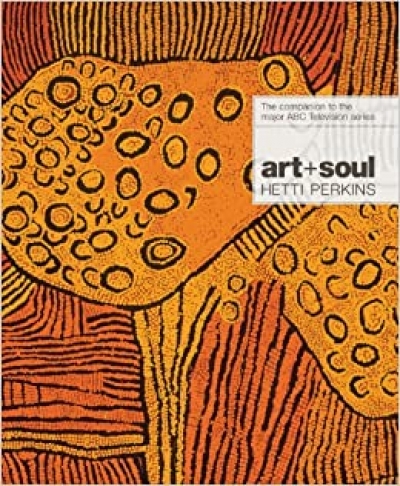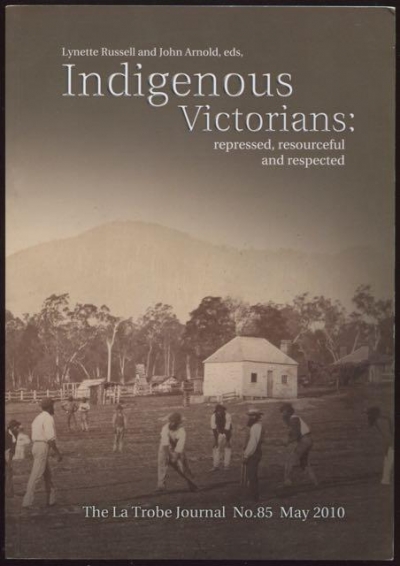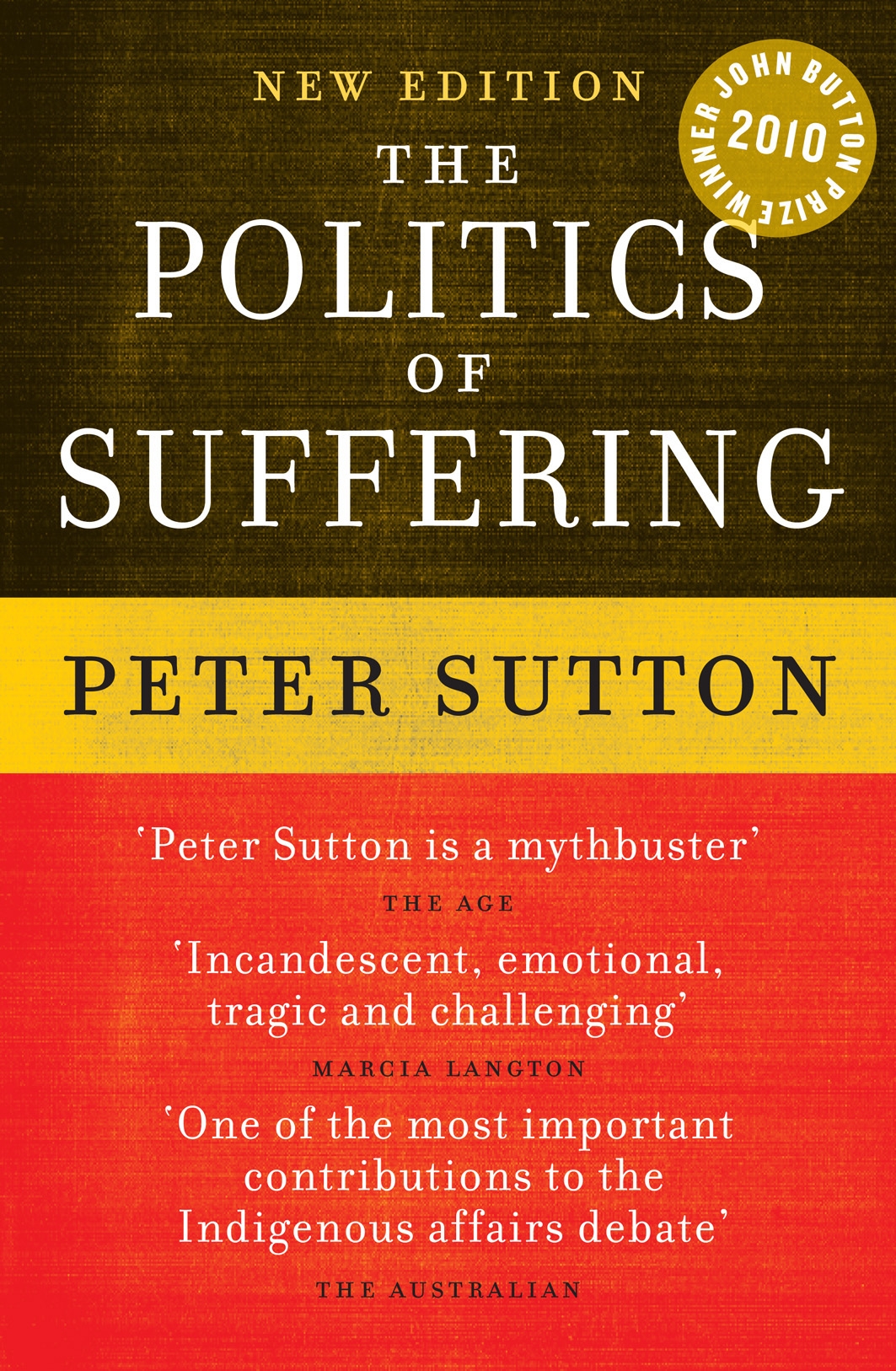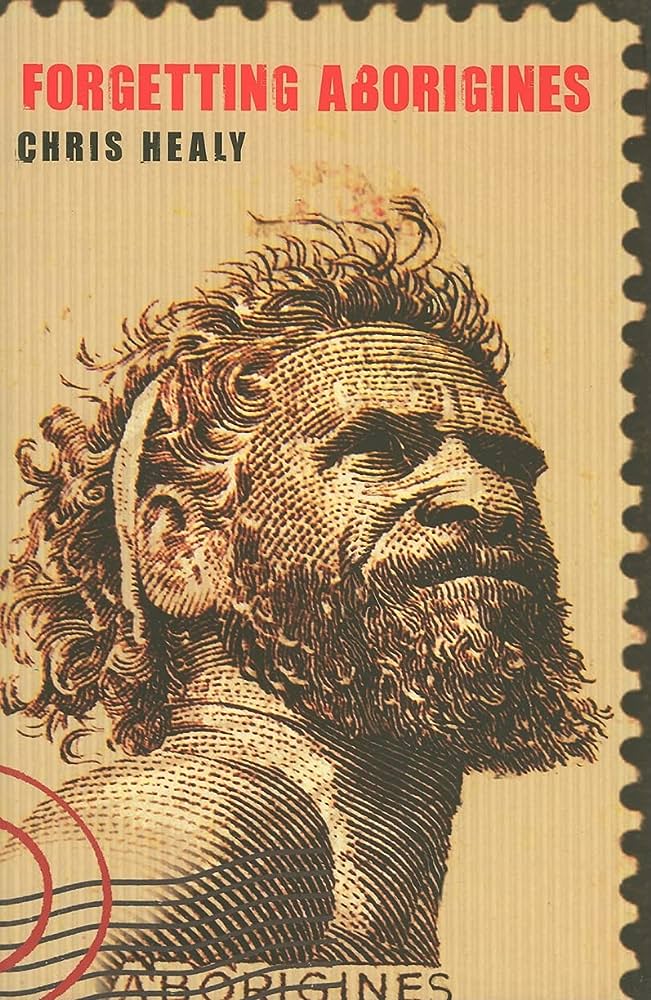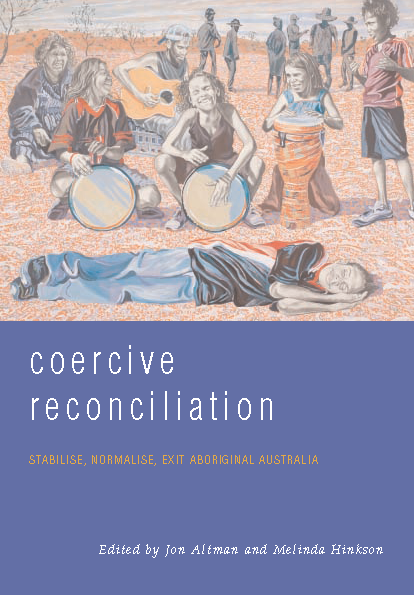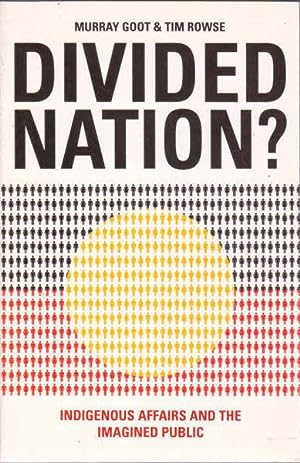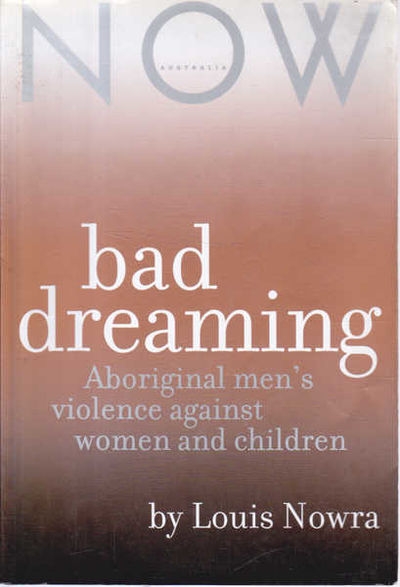Indigenous Studies
I am a doctor. Once I was a doctor of individuals, now I am a ‘doctor of populations’. Population health is about actions to improve the health of communities, nations, and the world. Challenges are many: the mobility and density of populations, contemporary desires and pressures, the safety of food in complex systems, poverty, the immense power of big businesse ...
The Telstra National Aboriginal & Torres Strait Islander Art Award 1984–2008: Celebrating 25 Years by Sue Bassett
The Telstra National Aboriginal and Torres Strait Islander Art Award is the major event on the Indigenous visual arts calendar. Its significance rests with the quality art exhibited under the mantle of the award and the crowd it attracts to Darwin every August. Artists from disparate communities mingle to cement relationships through shared kinship, songlines, and history. Excited coordinators from community cooperatives mix with urbane curators and gallery owners – projects are conceived. Collectors jostle to reserve the best works.
... (read more)art + soul: A journey into the world of Aboriginal art by Hetti Perkins
Pack the overnighter, put on the black dress – she wears it like a skin – kiss the kids, grab the wheel, don’t let go until back home. So Hetti Perkins begins ‘Home + Away’, the title of the first program of her recent television series, art + soul, and also the first chapter of the accompanying book.
... (read more)Indigenous Victorians: The La Trobe Journal, no. 85 edited by Lynette Russell and John Arnold
This special issue of La Trobe Journal is guest edited by Lynette Russell from Monash University, and John Arnold, the Journal’s new general editor (since No. 82). Titled Indigenous Victorians: Repressed, Resourceful and Respected, it showcases new historical scholarship that draws on the State Library of Victoria’s unrivalled collections. Topics covered in the twelve essays are diverse: Aboriginal guides to the Victorian goldfields, fisheries in western Victoria, cricketers at Coranderrk, Lake Tyers Aboriginal settlement, the Victorian Aboriginal Advancement League, and government legislation relating to Aboriginal Victorians, among others.
... (read more)The Politics of Suffering: Indigenous Australia and the end of the liberal consensus by Peter Sutton
This is a complex book from an anthropologist who has carried out research and established close relationships with indigenous people for four decades. Peter Sutton has lived through and participated in the Aboriginal protest movement from the early 1970s onwards, done extensive studies in support of securing tradition-based rights in land, and faced firsthand the well-publicised tragedies of many indigenous communities.
... (read more)Public passion and debate about Australia’s indigenous peoples ebb and flow. During the 1990s, Mabo, Wik, reconciliation and the Stolen Generations dominated public debate for months on end. Indigenous leaders such as Pat and Mick Dodson, Lowitja O’Donohue and Noel Pearson became familiar figures, prodding politicians and the public to remember unfinished business. As the official reconciliation process ground to a halt during the Howard government, Aboriginal issues receded into the background. They re-emerged spectacularly in 2006 with the cataloguing of widespread sexual and physical abuse in remote Aboriginal communities. This was in the lead-up to the government’s Emergency Intervention in the Northern Territory.
... (read more)Coercive Reconciliation: Stabilise, normalise, exit Aboriginal Australia edited by Jon Altman and Melinda Hinkson
A remarkable feature of this book is that its thirty essays were commissioned, written, edited and printed for distribution within four months of the Howard government’s declaration on 21 June 2007 of an emergency in the Northern Territory. Seldom can there have been such a rapid and comprehensive set of responses to a major federal government policy initiative, bearing as it did all the signs of political opportunism in its timing. By contrast with the massive legislation embodying the reforms, most of the essays are thoughtfully cast and well written: a good advertisement for the way deadlines can concentrate the academic mind. The ironic twist is that the contributors’ principal target now is the Rudd government, whose own political opportunism in Opposition ensured bipartisan support for John Howard and Mal Brough during the legislation’s scandalously brief parliamentary consideration. Significantly, Minister Jenny Macklin’s actions so far suggest that she is in sympathy with the book’s main thrust.
... (read more)Divided Nation: Indigenous Affairs and the Imagined Public by Murray Goot and Tim Rowse
Our lives are awash with opinion polls. The daily newspapers, television, radio, and internet poll people on just about every subject. The survey of public opinion has become, since the 1940s, a pervasive feature of everyday life, and is now central to the political process. Sophisticated, large-scale polling of attitudes at the national level – such as the National Social Science Survey, the Australian Election Study, Australian Survey of Social Attitudes and the World Values Survey – is increasingly reported on in the newspapers, with the more complex analyses of these findings left to academic journal articles and books. Alongside regular national polling on issues and leaders by AGBMcNair, Irving Saulwick and Associates, ACNeilson, Roy Morgan Research and Newspoll, political parties commission their own secret internal polling and focus group studies in order to tailor their message to their audience. In this federal election year, we hear clear echoes of this as the ALP leadership repeatedly drops in the key words ‘clever’ and ‘even cunning’ whenever they mention John Howard.
... (read more)Bad Dreaming: Aboriginal men's violence against women and children by Louis Nowra
There has been a concerted effort in the academy over three decades to argue that Aboriginal women were not oppressed by their men. How many times have I read of the autonomy women secured by being the chief food-gatherers, both for themselves and the men? On this basis the peasants in medieval Europe were the equal of their lords. Louis Nowra’s essay on the violence of Aboriginal men to their women is not the first to break the taboo over this subject; it may be, however, that his gruesome accounts will send the taboo into its death throes. He begins with an Aboriginal man boasting of rape, and proceeds through gang rape to sticks being used to enlarge vaginas.
... (read more)I am at the exhibition ‘National Treasures from Australia’s Great Libraries’. I have come to see a picture of a man named Bungaree. I am standing in front of him, but I am distanced. The painting is glazed, low-lit, hung on a wall on the far side of quite a deep display case. If I stand up straight he is in focus, but too far away for me to see the details. As ...



